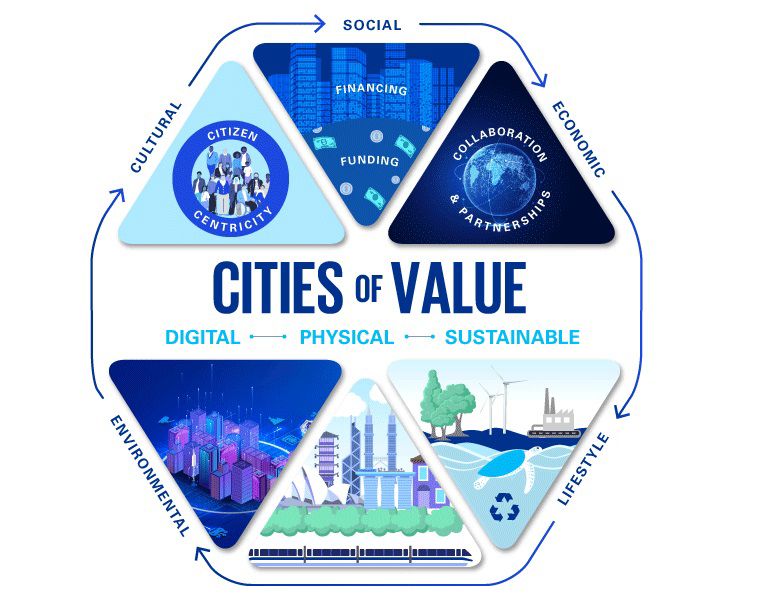Harness digital technology and data to deliver value to citizens through improved experiences, insight-led allocation of resources and greater connectivity, all while building trust and ensuring security and data privacy.
As the world undergoes unprecedented changes and shifting societal needs, urban areas are at the forefront of these transformations. Redefining urban development comes at a pivotal time, as they encounter complex challenges in building cities that are resilient, for current and future generations.
Parallel to the global outlook, the COVID-19 pandemic has catalyzed transformative impacts in Malaysia, compelling organizations to adapt and reimagine their urban planning approaches. In line with the government’s aspirations to achieve net-zero by 2050, Malaysia has embarked on a whole-of-nation approach to foster climate resilience. A prime example of this commitment is Sunway City Kuala Lumpur, Malaysia's first fully integrated low-carbon green township, showcasing the nation’s dedication to its climate action plan. Concurrently, collaborative efforts between the public and private sectors are underway to implement green growth initiatives across Malaysia. From championing green jobs and skills via the ASEAN Green Jobs Forum to revitalizing small towns such as Seberang Perai, Penang into sustainable and inclusive communities, Malaysia is committed to advancing its sustainability efforts and forging a greener, more resilient future for all. Whether it’s people, public spaces, or socioeconomic factors, such scenarios underscore the importance of incorporating principles of sustainability and inclusivity to tackle future urban challenges.
In KPMG’s Shaping Cities of Value report, insights from the 2023 Asia Pacific Cities Summit (2023APCS) & Mayors' Forum: Shaping Cities for our Future are highlighted. Drawing perspectives from leaders from 171 cities across the Asia Pacific region, the report aims to explore innovative solutions in urban development for sustained impact on communities. The thought leadership underlines that there is no one-size-fits-all approach for urban planning. However, KPMG’s Cities of Value framework offers a foundational structure, encompassing digital, physical and sustainable pillars. By adopting a holistic urban development approach – one that prioritizes inclusivity, innovation, and citizen-centricity – we can cultivate vibrant, livable communities capable of thriving, even in the face of uncertainty and change.
KPMG’s Cities of Value Framework
To understand the multifaceted nature of value, KPMG has developed a framework that could create, deliver or protect value for citizens of the future.
Enablers of value
Within each of these foundational pillars, there are three pivotal characteristics that cities should nurture to further enhance their value.
Understand citizen needs and investing in the capabilities required to adapt to those needs should be the primary focus in policy development, solution design and service delivery.


